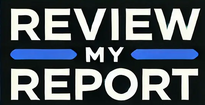You can dispute inaccurate or incomplete information. When you file a dispute, a process much like the one you use to dispute information in a credit report is triggered. Here’s a summary of how the dispute process works:
- You file a dispute in writing or by phone. You can file directly from this web site.
- The employment screening agency must investigate your dispute.
- If the agency cannot verify the information you disputed, the information must be removed.
- The agency does not have to continue an investigation if it decides your complaint is “frivolous or irrelevant.”
- The agency has 30 days to notify you of the results of the investigation.
- You have to be notified if negative information is deleted but later reinserted.
- If the agency will not remove negative information, you can include your own statement in the file.
If the inaccuracy is a result of identity theft in which someone committed a crime under your name, visit the California Attorney General’s web site for information on how to register that inaccuracy. www.caag.state.ca.us/idtheft/packet.htm
The FCRA has a general seven-year rule as the limit for reporting negative information on an employment background check. One exception is that under the FCRA, criminal convictions can be reported indefinitely except in some states where state civil code defines the length of time the information can be reported. For example, in California, criminal convictions can only be reported for seven years unless another law requires employers to look deeper into your background. The FCRA also has a ten-year limit for reporting bankruptcies.
The FCRA or State Civil Code does not apply if another law requires a government agency or employer to conduct a certain type of background check. Many jobs require an employer to check for criminal convictions far beyond the seven-year limit included in some state civil codes. For example, operators of residential care facilities for the elderly and the facility’s employees are subject to a “full criminal records” check. (California Health and Safety Code ‘1569.17)
In addition, occupations that require a state license often require an extensive criminal background check.
In some cases, a criminal record may be what the law calls “expunged.” Technically, the term means to erase or strike out. Despite the definition, an expunged record does not necessarily mean that all traces of an offense will disappear from the courthouse and/or from the Internet web sites of information brokers. Even if a record is expunged, the fact that there was a conviction may not be blocked, even if the details of the case are erased from public view.
And the fact that a record is expunged does not mean that you will never have to disclose the information. Application for a state license or a specific kind of job may demand disclosures of information that covers your lifetime.
Yes. Credit reports and the companies that compile credit reports are governed by the FCRA. The FCRA allows your employer to obtain a copy of your credit report for “employment purposes”. Several states limit the use of credit reports for employment purposes.
Generally, the same rules about access, disputes, and disclosure limitations apply equally to a credit report and an investigative consumer report.
It’s a number lenders use to help them decide: “If I give this person a loan or credit card, how likely is it that I will get paid back on time?” A FICO score is a snapshot of your credit risk picture at a particular point in time. The higher your score, the lower the risk to lenders. Fair Isaac Corporation develops the mathematical formulas used to produce FICO scores. A FICO score does not appear on an employment credit report.
For more information on FICO score, click here
